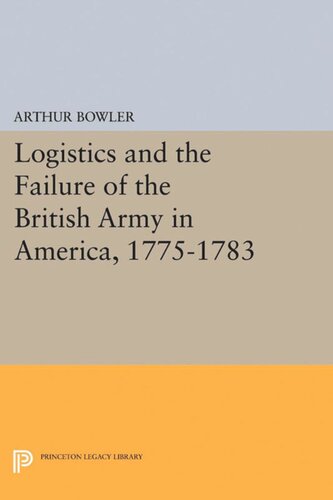

Most ebook files are in PDF format, so you can easily read them using various software such as Foxit Reader or directly on the Google Chrome browser.
Some ebook files are released by publishers in other formats such as .awz, .mobi, .epub, .fb2, etc. You may need to install specific software to read these formats on mobile/PC, such as Calibre.
Please read the tutorial at this link: https://ebookbell.com/faq
We offer FREE conversion to the popular formats you request; however, this may take some time. Therefore, right after payment, please email us, and we will try to provide the service as quickly as possible.
For some exceptional file formats or broken links (if any), please refrain from opening any disputes. Instead, email us first, and we will try to assist within a maximum of 6 hours.
EbookBell Team

4.8
94 reviewsThe myth of the eighteenth-century British "war machine" persists, perplexing those who search for the reasons why Britain lost the Revolutionary War. In this book, R. Arthur Bowler argues that although recent and traditional studies have pointed out many problems of the British forces in America, they have failed to appreciate a major weakness—logistics.
The author draws on the remarkably complete records of British government offices concerned with logistics during the Revolutionary War and army service departments such as commissary, quartermaster and barrack-master generals to provide a full account of the everyday life of the British army and an accurate record of how logistical and administrative problems in America affected the course of the war. His study makes it clear that the British army in America depended almost entirely on Britain for supplies, and that for six years inadequate and sometimes corrupt administration seriously affected the course of operations and the morale of the troops. An organization capable of supplying the army was not developed until 1781, too late to change the outcome of the war.
Originally published in 1975.
The Princeton Legacy Library uses the latest print-on-demand technology to again make available previously out-of-print books from the distinguished backlist of Princeton University Press. These editions preserve the original texts of these important books while presenting them in durable paperback and hardcover editions. The goal of the Princeton Legacy Library is to vastly increase access to the rich scholarly heritage found in the thousands of books published by Princeton University Press since its founding in 1905.